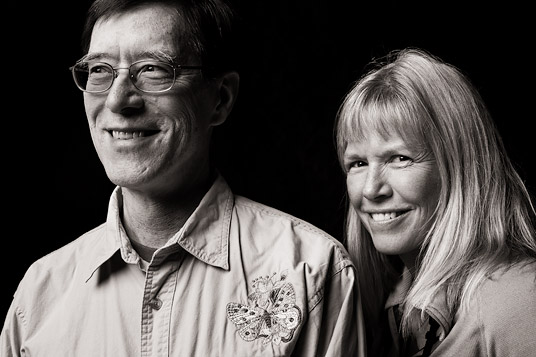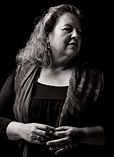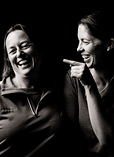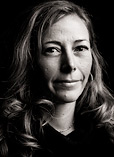
Nancy Baron & David Inouye
Witnesses
THEMES: Society, Science & Research | WORKSHOP: Natural History & Society
Biographies
Nancy Baron
Nancy is the lead communications trainer for COMPASS and the Aldo Leopold Leadership Program. Her work focuses on helping environmental scientists translate their research effectively to journalists, the public and policy makers. She started her career as a naturalist in provincial and national parks, a biologist in Banff National Park, and was Director of Education at the Vancouver Aquarium before morphing into journalism. Nancy was a columnist for the Vancouver Sun, a commentator for Global TV and has written for a wide range of magazines and newspapers most recently including Nature, Science and the Los Angeles Times. Her field guide, Birds of the Pacific Northwest Coast was published by Lone Pine Publishing in 1997 and is still a popular guide for beginning birdwatchers. Escape the Ivory Tower: Making Your Science Matter, was published by Island Press in the fall of 2010.Conversations:
Workshops:
David Inouye
David is a faculty member in the Biology Department at the University of Maryland (since 1976), on leave this academic year to work at the National Science Foundation as a Program Director in the Population and Community Ecology Cluster of the Division of Environmental Biology. For 40 years he has spent summer field seasons in Colorado, all except two of those at the Rocky Mountain Biological Laboratory. His research there includes a variety of projects related to wildflowers (phenology, demography, pollination, abundance) and pollinators (bumble bees, hummingbirds, flies), as well as work on ant-plant mutualisms. Much of this work could be considered natural history, but the 37-year record he has for some of these projects also makes them valuable as scientific records for interpreting the consequences of climate change.Conversations:
Workshops:
Transcript
Nancy Baron: When you go back this summer, are there any animals in particular or plants that you just have this real connection with, that you really want to know, is it still there?
David Inouye: Well there are some individual plants, actually. In 1983, I planted some seeds from some of these long-lived gentians that I think, in some cases, may live 80 years before they flower once and die. So I was very curious to see when is the first one of those seeds actually going to flower, and it happened at 23 years. But only about half the plants that are still alive have flowered so far. So one thing I'm looking forward to, and hopping that I'll live long enough to see, is when does the last of those plants that I planted from seed actually come to the end of its life and bloom.
Nancy Baron: I really do deeply believe that scientists and naturalist of all stripes are witnesses to nature and all that entails, in ways that really are so important for others to know and to share and appreciate. The best way we can do that is by telling stories, by telling our experiences.
That's an amazing story about the gentians. There is nothing like the power of somebody who is in a place, seeing things going on and observing them, to help us care. I feel that one of the saddest things about society today is that so few people have the opportunity or perhaps the inclination. We don't want to see the extinction of experience. We want to see the rebirth, the renaissance of as many people as possible experiencing the juice and joy of nature. And you can do it at the end of a leash. You can do it in you backyard, in your garden. Or you can do it in the far-flung places of the earth. Every time you go and stop and look for awhile, something happens. That's what's so amazing. If you just pause to look, there's something there.


